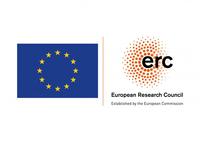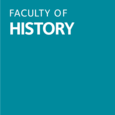The Project
The Topic of Investigation
In spite of the existence of a vast, global archive of sources, our knowledge of Eastern Christianity in the early modern period remains surprisingly limited. In part, this is a reflection of the fact that most scholars who command the requisite philological skills have tended to focus on the early medieval period or on the contemporary situation of Christians in the Middle East. What little work has been done on the early modern period remains problematic and limited in several ways. Firstly, scholars have tended to restrict themselves to local and nationally-oriented studies of particular Eastern Christian communities such as the Copts of Egypt, the Maronites of Lebanon, or the Assyrians of Iraq. While undoubtedly an important contribution to our knowledge of the period, these studies are imperfect in as much as they ignore interactions taking place between specific communities as well as between these communities and the wider world. Indeed, much of the existing scholarship emphasises the doctrinal differences that separated particular Eastern Christian churches from each other, while ignoring the fact that many of these communities shared a common vernacular in the language of Arabic and, for some, the historical and liturgical use of Syriac. Secondly, our knowledge has been misguided by an outmoded conception of Christians as a ‘second-class’, minority population in the Islamic world. This idea is more a reflection of twentieth-century realities than early modern ones, and the consequence is that Eastern Christianity has been relegated to the margins of Ottoman history. When approached at all, Eastern Christians are too often studied through the prism of ‘Islamic’ history, almost as if they made no history of their own.
The Project and its Objectives
Firstly, the project will reconstitute a ‘lost archive’ of Eastern Christianity, and it will analyse for the first time a vast corpus of recently discovered sources. These stories of the Christian subjects of the sultan have long been scattered in monasteries and churches in Syria, Lebanon, Egypt, and Iraq, and they have been given new life through the efforts of a recent wave of European- and American-funded digitisation projects. Using these new digital resources in conjunction with published catalogues of the eighteenth, nineteenth, and twentieth centuries, the research team will chart the literary production of Eastern Christianity in Arabic, Syriac, and Karshuni from 1500 to 1750, and it will make this preliminary phase of the research available to scholars through an online bibliographical database.
The creation of a database, however, is not a goal in itself; rather, with the completion of this first phase of work (2016-17), the research team will use it as a tool for engaging in a truly ‘connected history’ of Eastern Christianity, one which seeks to explore Eastern Christianity ‘from within and without’ in this period. To this end, a diverse set of questions will drive forward the team’s research. For example: (1) What impact did the Protestant and Catholic Reformations have on Eastern Christianity, and what was the significance of Eastern Christianity to the European religious changes of the early modern era?; (2) In what ways did Eastern Christians travel so far beyond the boundaries of the Ottoman Empire?; and (3)How did individual Eastern Christians make sense of their own place in the world and how was this expressed in written, visual, and printed culture?
Towards a New History of Eastern Christianity
This project begins with the assumption that the history of Eastern Christianity must be studied in the context of wider European and global developments in the early modern period. Recent attempts to recast early modern history have shown in poignant ways how our understanding of the period is radically changed by a consideration of Eastern Christianity. Placing Eastern Christianity at the forefront of European, Islamic, and global history requires a structured programme of dissemination, and the project team will be expected to play a key role in making the team’s research intelligible and relevant to the widest audience of historians. As such, the team will target the findings of its research in articles that reach three main audiences: specialists in Eastern Christianity, scholars in Middle Eastern history and Islamic studies, and ‘mainstream’ history journals aimed at wider circles of early modern historians. In addition, the team will disseminate its findings at several international conferences and smaller workshops. In this way, the Stories of Survival project seeks to place Eastern Christianity at the forefront of European, Islamic, and global history in the early modern period.




